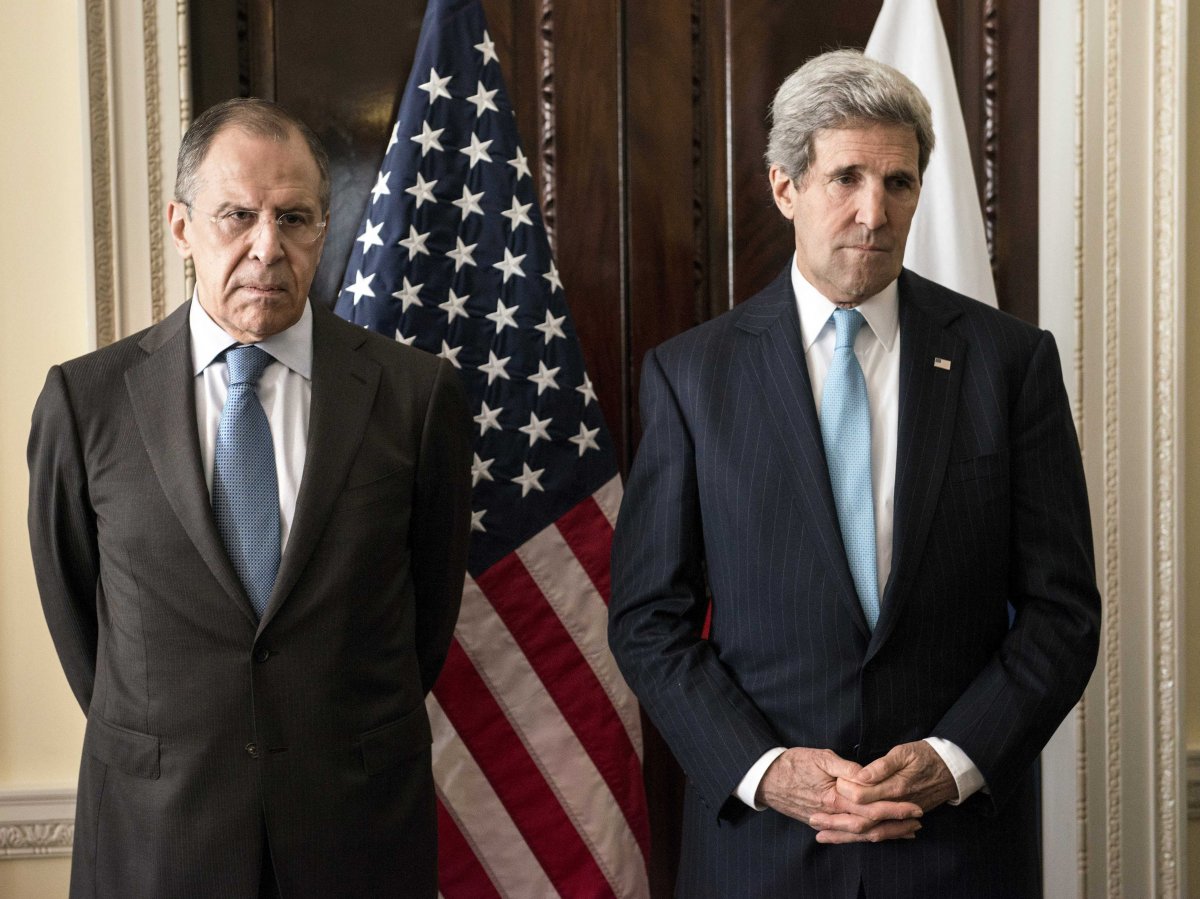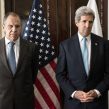
Fake ‘Referendum’ in Crimea Sets a Real Watershed for Russia
Publication: Eurasia Daily Monitor Volume: 11 Issue: 50
By:

The only real result from the hastily organized and crudely manipulated political act in Crimea last Sunday (March 16)—which should not be called a “referendum,” because it had nothing to do with a free expression of popular will—was that it did, indeed, happen. A last-minute postponement would have been awkward for the policymakers in Moscow, but it would have still left them with some freedom of maneuver for checking Russia’s transformation into a “rogue state.” Instead, now they have to act on their own “choice” for the 2 million inhabitants of Crimea to secede from Ukraine and join the Russian Federation. They have to act quickly before the “patriotic” fervor in Russia, induced by a heavy dose of propaganda, gives way to a painful realization of the material consequences of these actions (https://polit.ru/article/2014/03/13/acident/). The Russian authorities are afraid that any back-pedaling would bring this sobering realization closer. And so the bewildered Europe, which keeps expecting the continent’s largest state to rediscover political common sense, will most probably see the first execution of forceful annexation since the end of World War II already this week.
In the coming days before the legislation on annexing Crimea is approved in Moscow, it is more or less clear what is going to happen in relations between Russia and the United States–led coalition of the willing, which includes all stakeholders in the European security system. First, the narrow and secretive circle of President Vladimir Putin’s courtiers will be banned from travelling to the European Union and the United States because of their involvement in Russia’s military intervention in Ukraine (Kommersant, March 14). Other personalized sanctions, including the freezing of bank accounts, will be enforced in order to bring home the message that Russian elites, who value their cosmopolitan lifestyle, should start adjusting to their country’s new status of international pariah. Russian oligarchs still think that their fortunes will exempt them from any punishment, but they are taking notice of the misfortune that, last week, befell Ukrainian gas trader Dmytro Firtash in Vienna (https://www.forbes.ru/mneniya-column/konkurentsiya/252012-arest-firtasha-novyi-povorot-v-gazovoi-voine).
It is harder to evaluate the impact of the next set of sanctions, which will have to be enforced after Moscow tries to establish the annexation of Crimea as a fait accompli. The Kremlin was obviously under the impression that the disunited West, led by its compromise-oriented politicians, would never be able to agree on a meaningful resistance to Russia’s determined offensive (https://www.gazeta.ru/comments/ column/lukyanov/5952017.shtml). And yet, despite the damage to its own economic interests, the EU is well aware that it needs to take further extraordinary steps—including ones that seemed inconceivable even a month ago. Putin’s lieutenants, on the other hand, cannot quite comprehend that their demonstrative disregard of Western pressure is only adding to the West’s resolve. Gazprom, for instance, was previously seen in Europe as a partner too valuable to antagonize. But now its CEO, Alexei Miller, is on the short list for sanctions and the company’s European assets are seen as legitimate targets for economic penalties as well (https://newsru.com/finance/17mar2014/gazpromsan.html).
Any pragmatic calculation shows that the costs of re-incorporating Crimea into Russia are prohibitively high. Yet, such estimates are clearly not being taken into account by the advocates of correcting the “historic injustice” (Novaya Gazeta, March 14). Further sanctions are certain to increase this burden on Russia; but the policy planners in the EU have to take into account the possibility that the Crimean peninsula, whatever its symbolic value to many Russians, may not be the real goal of the Kremlin’s feverish aggressiveness. In fact, Putin has never shown any sentimental feelings for this beautiful but badly neglected resort. Rather, he remains anxiously obsessed and preoccupied with the specter of anti-government revolutions in the region (https://gefter.ru/archive/11640). Sending troops to Crimea seems ill-advised if the aim is to succeed in detaching it from Ukraine. But it makes more sense if the intention was to demonstrate Russia’s determination in deterring and discrediting the revolutionary breakthrough toward a new democratic and European future for Ukraine. In order to torpedo such aspirations, Russia must proceed from the first “victory” in Crimea to the main theatre of counter-revolutionary struggle: eastern and southern Ukraine. The bloody provocations in Kharkov last Saturday fit into such campaign plan (https://newsru.com/world/15mar2014/mvdkharkov.html).
Russian public opinion is strongly in favor of embracing Crimea and broadly supports the use of troops for stabilizing the situation in eastern Ukraine. Only 36 percent of respondents express concern about the risk of war (Novaya Gazeta, March 15). It takes courage to express a dissenting opinion; nevertheless, tens of thousands of Muscovites marched last Saturday against the military intervention and in support of Ukraine’s independence (https://echo.msk.ru/blog/old_dweller/1280272-echo/). The police did not try to disperse the unexpectedly strong rally. However, independent media voices, including Internet publications, are being silenced one after another.
Clearly, street protests, important as they are for preparing a shift in public opinion, are not going to slow down Putin’s military crusade against the Maidan movement in Ukraine (Nezavisimaya Gazeta, March 12). US President Barack Obama made yet another futile effort last night (March 16) to dissuade Putin from breaking the basic norms of international behavior. And the lengthy meeting between US Secretary of State John Kerry and Russian Foreign Minister Sergei Lavrov last Friday confirmed that the space for diplomatic compromises is non-existent (Kommersant, March 15). Economic sanctions could push the Russian economy into a deep depression—and its affluent elites into a quiet panic. But the sanctions’ impact needs to be reinforced by some extraordinary measures that would shock the overzealous interventionists in the Kremlin. Cyber instruments could prove useful, but some old-fashioned penalties, like for instance the multilaterally ensured closure of the Bosporus for the Russian navy, might produce a strong impression. That would certainly constitute a violation of the Montreux Convention (1936), but Moscow is hardly in a position right now to appeal to international law.




